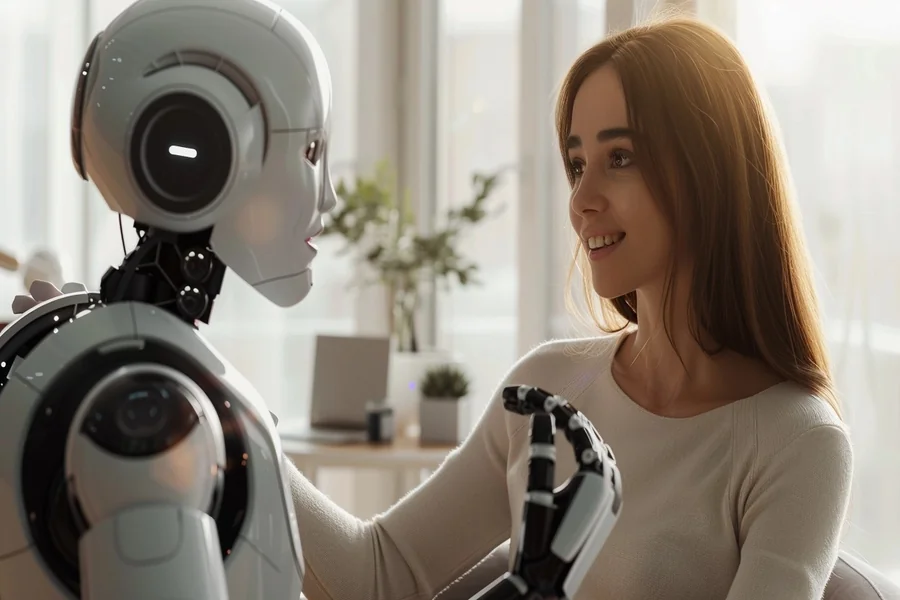Introduction About Replacing Human Connection
Artificial intelligence used to be mostly connected to futuristic robots and science fiction films. It’s part of our daily lives now. It answers our questions, plans our schedules, suggests music, and keeps us company. AI companions are evolving into emotional partners for humans looking for communication, convenience, and—surprisingly—comfort. They are no longer just tools. Many people enjoy entertainment, like sports betting and online gaming. But others are quickly turning to AI for daily communication and emotional support.
The technology underlying AI companions has advanced, whether it’s a voice assistant like Siri or Alexa or a more customized chatbot like Replika. These apps are able to recognize your tone, pick up on your routines, and even recall your preferences. They gradually begin to feel more like someone—or something—you know than like software. This same adaptability is being harnessed in business. Many small businesses now rely on an ai receptionist for small businesses to manage calls, answer customer questions instantly, and create a seamless customer experience. This change has brought up an important question: Do AI companions improve our lives or subtly take the place of deep human connection?
The attraction makes sense. AI companions provide a steady, nonjudgmental, and round-the-clock type of engagement in a world where loneliness has become a hidden epidemic. A virtual companion can be a lifesaver for those who are experiencing social isolation, anxiety, or depression. Entry barriers are low since there is no pressure to impress, no chance of rejection, and no awkward small talk. It’s a dialogue that always works in your favor.
But the paradox is there. AI, no matter how sophisticated, cannot truly replace the friction, unpredictability, and fragility that underpin human connections. Machines can mimic empathy, but they are unable to experience it in real life. The risk isn’t what AI can do. It’s about what we might stop doing when we replace real human interactions with artificial ones. Will we attempt less with those around us if conversing with a machine is “good enough”?
There are differences among psychologists. Some people think AI can be a beneficial addition, particularly for people who don’t have frequent company. Others caution that it could encourage avoidance habits and push people to withdraw into a safe haven of digital affirmation. The issue is cultural in nature rather than merely emotional. We risk building a future where discomfort, which is key for growth, disappears. In this world, honesty might become optional.
It’s difficult to overlook the beneficial use cases, though. AI is being tested in digital tutors, senior care robots, and treatment applications. These are extensions—tools that fill in when people aren’t around—rather than replacements for actual humans. AI can boost communication skills, support mental wellness, and help people feel more confident in social settings.
Conclusion
Is human connection being replaced, then? Not quite yet. However, we are changing it. Deploying AI companions in ways that strengthen our bonds will be tough. As they blend into our daily lives, we must be careful not to let them weaken our connections. Relationships in the future may not be about man vs machine, but rather about preserving our humanity while coexisting with the machines we have built.




